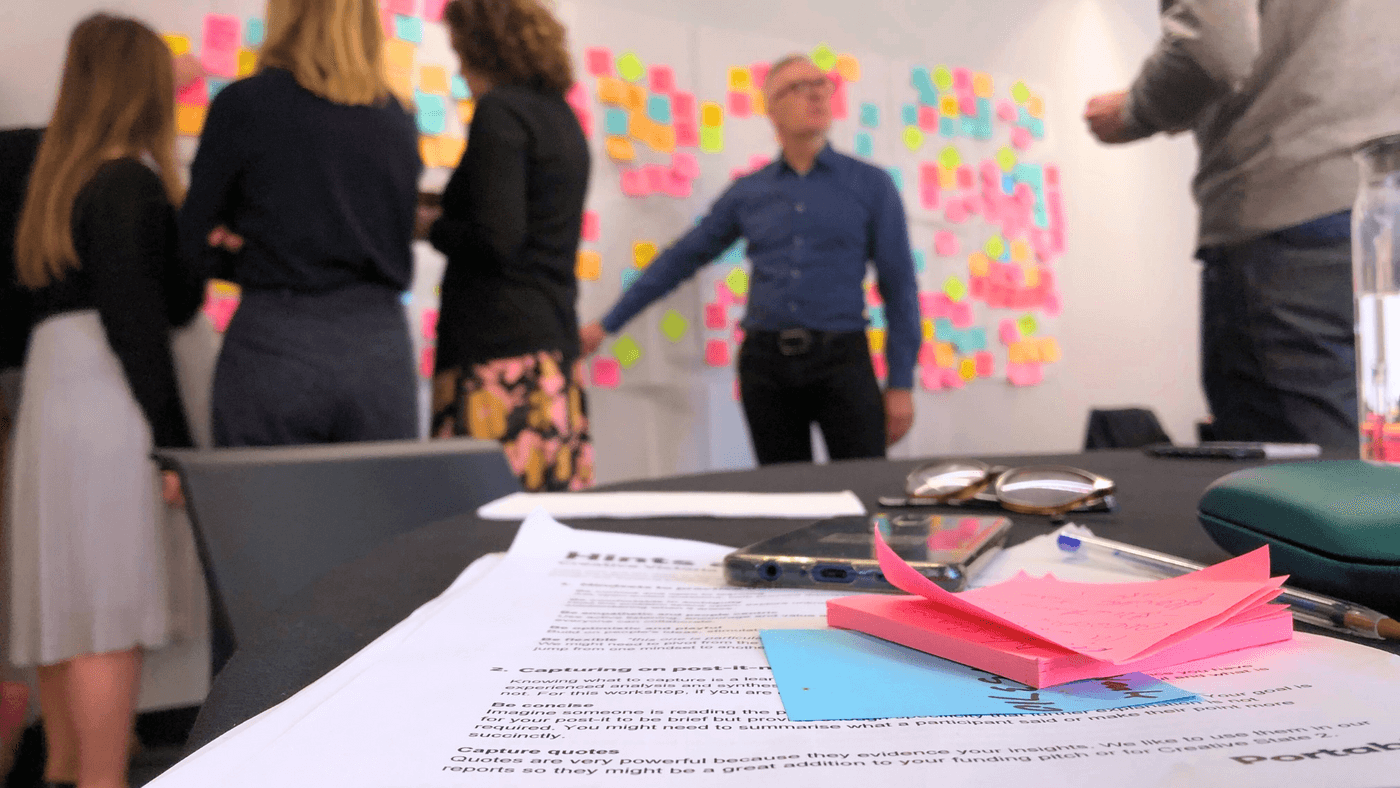
AI is complex. That’s exactly why we’re here.
The tech is moving fast. The governance is catching up. Your team has questions. No one quite agrees on what to do next. Welcome to the real world of AI.
We run AI Design Sprints to help teams explore and make decisions in this uncertain, fast-changing space—without hype, jargon, or panic. It’s an intensive, expert-led process that cuts through the noise, gets to the heart, and delivers real insights and ideas to take back to your organisation.
We bring designers, technologists, and strategists together with your team to explore:
- Where AI could help, what kind(s) of AI could help?
- What your data and systems can actually support right now, and where you might want to get to do it better and better.
- What ethical, human and technical challenges are at play.
- How to move forward with confidence (or decide not to).
We’re not afraid of complexity. Whether it’s a technically gnarly system or a cross-organisation tangle of policy, people, priorities and risk—this is where we shine. We create grounded, collaborative spaces to imagine, create, challenge, and test together.
You’re in safe hands.
We have helped data science teams refine explainability and assess AI feasibility, VC-backed companies figure out how to scale and grow with AI, government agencies, consumer rights groups, and legal bodies explore AI’s impact on policy, compliance, and public services. Want to know how that went?
Live examples of our RAG bots.
What you will actually do in a sprint
Over 3–5 days, we’ll help your team:
- Unpack a fuzzy AI idea, or problem you think has a twinkle of an AI shape to it, and give it bones.
- Explore where AI makes sense—and where it doesn’t.
- Prototype a concept, tool, or flow (no overbuilding!).
- Evaluate risks, benefits, and unknowns using clear frameworks.
- Facilitate the hard conversations—ethics, trust, risk, regulation.
- Get to a decision: build, pause, pivot, or bin it entirely.
You get to tell us what you need. This isn’t a tiny investment of time or resources, so we want to make it count. This may mean:
- Finding real ways to save money, generate revenue, or improve services using AI.
- Making the most of platforms you already use—like Azure, Google Cloud or OpenAI.
- Exploring whether to build your own AI-powered product or service.
- Testing if AI is even the right fit for your problem (spoiler: sometimes it’s not).
- Keeping pace with the rapid changes in AI—without chasing every shiny new thing.

We won’t lead you in circles.
We care deeply about AI ethics. But not as an academic exercise. We’ve worked with clients across law, government, justice and health to operationalise ethics—through design, prototyping, testing, explainability, and policy.
Our team combines years of experience in:
- Human-Centred AI strategy and evaluation
- Ethical risk and impact assessment
- Prototyping and testing AI-powered services
- AI literacy and decision-making frameworks
We’ll help you understand what you're building—and why.
We love technical teams
There’s something magical about bringing our design instincts into the engine room—where the models are being trained, the data wrangled, and the weird edge cases start to bubble up.
We’re not here to slow things down or dumb things down. We’re here to make sure the right questions get asked, the right people are considered, and what gets built actually earns people’s trust. We help teams spot risks early, sketch fast, test wisely and cook up ideas that are technically sound and deeply human. It's a collaboration—and it should feel good.
Ethical AI that you can trust
Portable has a long history with AI, as we have been learning and experimenting with AI for over a decade. Trust, compliance, and safety always come first in Portable AI work, though, and we will centre those ideals within our sprint with you.
AI is a socio-technical system. It impacts people. It reflects power. It raises new questions we haven’t answered yet. That’s why we sprint.
We make space for critical thinking, shared learning, and real progress.
With just enough structure—and a lot of curiosity.

